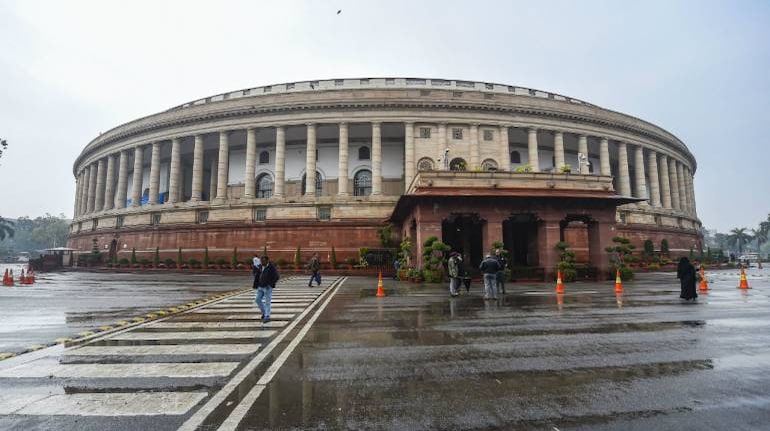



Prime Minister Narendra Modi's address on the final day of the Old Parliament building's operations served as a poignant representation of the challenges and resilience that our democracy has endured over the past 76 years.
Despite its origin as the Imperial Legislative Council building under British rule, it is an indisputable fact that the individuals, resources, and craftsmanship that brought this structure to life have imbued it with a distinctly Indian character, surpassing its British roots.
Focal Point Of Public TrustThe Old Parliament building has stood witness to India's transformation from a mere political concept into a tangible and formidable nation, with all its grandeur and strength. In fact, the very ideals that have moulded India into its present form originated within the hallowed halls of this esteemed institution.
What the Constitution makers had envisioned for the nation was ultimately crystallised through the enactment of laws and amendments after intense debates and passionate discord, marking the daring journey of a democracy.
Amid political divergences and apprehensions, the increasing trust the average citizen has placed in the Parliament has fortified our democratic system. This faith in the public realm bore fruit when P V Narasimha Rao undertook a crucial course correction to bolster the nation's financial foundation and when Atal Bihari Vajpayee embarked on a similar endeavour to reform the education sector.
Small but significant decisions such as eliminating canteen subsidies and implementing salary reductions during the pandemic also served to reinforce this trust, as it demonstrated the commitment of people’s representatives to responsible governance and fiscal prudence.
Incubator Of Prescient ThoughtsWhile BR Ambedkar is widely recognised as the principal architect of our Constitution, it was heartening to see PM Modi acknowledging one of his often-overlooked contributions, in his address. Ambedkar's early work on a water policy, dating back to his days on the Executive Council, served as a blueprint for managing our water resources, irrigation, power generation, flood control, and famine insurance. Even today, we continue to strive towards realising this vision through the Department of Water Resources, River Development, and Ganga Rejuvenation.
Similarly, the contributions of Syama Prasad Mukherjee, Lal Bahadur Shastri, and Charan Singh, though highly significant, often receive less recognition in contemporary times. Mukherjee's pivotal role in formulating the country's first industrial policy laid the foundation for India's drive towards industrialisation.
In the aftermath of the Sino-Indian War, Shastri's leadership not only rejuvenated the self-belief of our soldiers but also breathed new life into another vital segment of the society – farmers – through the Green Revolution. Much of the work undertaken by PM Modi's government is directed towards the rural sectors of the country, and the development in these areas owes its roots to the visionary ideas of Singh.
Global Leadership BeckonsToday, India stands as a thriving democracy, a stable economy, and a welcoming Vishwa Mitra, as emphasised by the PM. India's commitment to inclusivity is exemplified by initiatives like Vaccine Maitri and the inclusion of the African Union in the G20 during her presidency. We are poised for exponential growth over the next two decades, positioning ourselves as a prominent financial and diplomatic powerhouse. We may see policies aligned to this change, which will have profound influence on our society and polity.
As PM Modi emphasised, the present members of the Parliament find themselves at a pivotal juncture, serving as a bridge connecting the past to the future. This transition is not merely a shift from one physical building to another; it signifies the transfer of invaluable inspiration from an august platform that was central to shaping India's political and cultural identity.
India's influence in global politics is set to rise, especially with the prospect of a permanent seat in the United Nations Security Council. In essence, we won't just be representing the desires of 1.4 billion Indians but also those around the world who place their hopes in us.
I fervently want both the Treasury and Opposition benches to recognise the historical significance of this moment as we bid farewell to the old house. While some have championed democratic ideals within its walls, others have made the ultimate sacrifice defending this house from external threats.
Paying due obeisance to both, may our representatives engage in substantive debates and ensure that prejudiced political interests do not divert us from our ascent on the world stage. The statement of Vajpayee, reiterated by Modi, has a message in it for them: "Governments will rise and fall, but the nation and democracy will remain."
Sreejith Panickar is a political commentator and an independent researcher. Views are personal, and do not represent the stand of this publication.Discover the latest Business News, Sensex, and Nifty updates. Obtain Personal Finance insights, tax queries, and expert opinions on Moneycontrol or download the Moneycontrol App to stay updated!
Find the best of Al News in one place, specially curated for you every weekend.
Stay on top of the latest tech trends and biggest startup news.